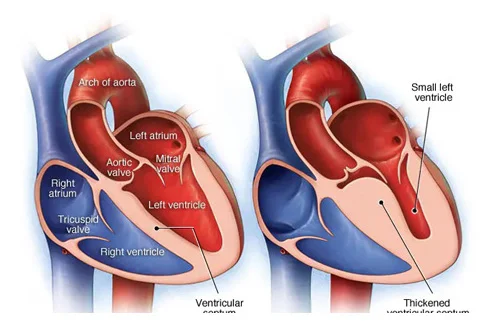Arrhythmic Heart Disease: Understanding & Managing Irregular Heartbeats
Arrhythmic Heart Disease, also known as arrhythmia or cardiac arrhythmia, is a condition that affects the rhythm of the heart. It occurs when the electrical impulses that regulate the heartbeat do not function properly, causing the heart to beat too fast (tachycardia), too slow (bradycardia), or irregularly. While some arrhythmias are harmless, others can lead to severe complications such as stroke, heart failure, or sudden cardiac arrest.
Causes of Arrhythmic Heart Disease
Several factors can contribute to the development of arrhythmias, including:
- Coronary artery disease (CAD) : Narrowed arteries reduce blood flow to the heart.
- High blood pressure (Hypertension): Increases the workload on the heart.
- Heart attack (Myocardial infarction): Can damage heart tissue and affect electrical signals.
- Electrolyte Imbalance: Low or high levels of potassium, sodium, or calcium can disrupt heart rhythms.
- Excessive caffeine, alcohol, or drug use: Can trigger irregular heartbeats.
- Genetic predisposition: Family history of arrhythmia increases risk.
Symptoms of Arrhythmic Heart Disease
Some patients may experience no symptoms, while others may notice:
- Palpitations : A fluttering, pounding, or racing heartbeat.
- Dizziness or lightheadedness: Caused by inadequate blood flow to the brain.
- Shortness of breath: A sign that the heart is not pumping efficiently.
- Fatigue or weakness : Due to reduced oxygen circulation.
- Fainting (Syncope): A serious sign of irregular heart activity.
Who Needs Diabetes Management?
Diabetes care is essential for individuals with:
- Type 1 Diabetes: Insulin-dependent condition requiring lifelong management.
- Type 2 Diabetes : Lifestyle-related diabetes that can be managed with diet, exercise, and medication.
- Gestational Diabetes: Occurs during pregnancy and requires careful monitoring.
- Pre-Diabetes : A warning stage that, if managed early, can prevent full-blown diabetes.
Diagnosis & Treatment
At Ayush Heart & Wellness Care Clinic, we offer advanced diagnostic tests to detect arrhythmic heart disease, including:
- Electrocardiogram (ECG/EKG): Measures the electrical activity of the heart.
- Holter Monitoring: A portable device that records heart rhythms over 24–48 hours.
- Event Monitoring: Used for intermittent arrhythmias that occur occasionally.
- Echocardiogram : Provides detailed images of heart function.
- Electrophysiology Study (EPS) : Identifies the source of abnormal heart rhythms.
Why Choose Ayush Heart & Wellness Care Clinic?
- Experienced Cardiologists: specializing in heart rhythm disorders.
- State-of-the-Art Technology: for accurate diagnosis and treatment.
- Comprehensive Cardiac Care: ensuring long-term heart health.
- Personalized Treatment Plans : for effective arrhythmia management.
If you experience irregular heartbeats or related symptoms, early diagnosis and treatment can save lives.
